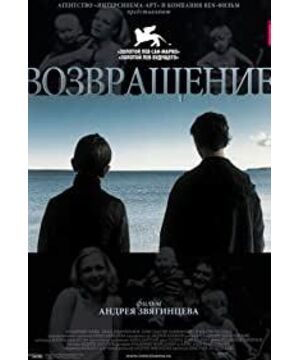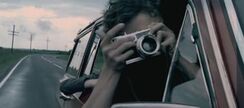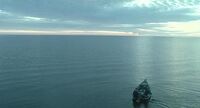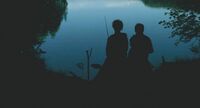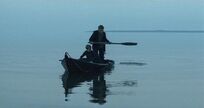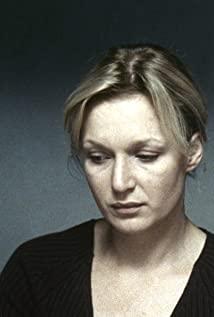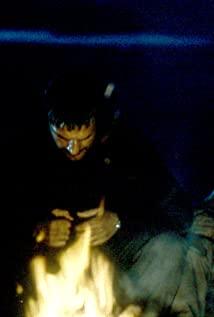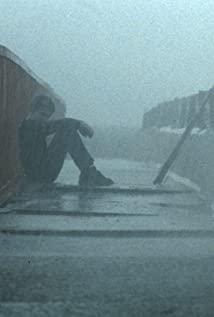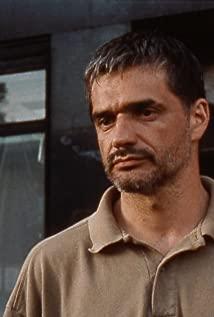Author: Gan Guoxiang Source: 2005 No. 4 "Growth"
For many people, "Return" directed by Russian director Andrei Zeyagensov is an obscure film. The low and dumb background music, the confusing storyline, the deep and complicated character, the contradictory movie themes, and the blue-gray tones that cover the whole film... all these constitute the "dyslexia" for Chinese audiences, and many people are watching I had to sigh after this film: I don’t understand, I don’t understand. Even on the Internet, comments on this film are of no avail. The reason is that I did not grasp a key element of reading this film-understanding the meaning of "father".
In fact, from the beginning of the film, it has been hinted that all the following plots will be necessary explanations for this group of shots or various possibilities unfolded from it. Before the film appeared on the list of directors and actors, several boys dived on a high platform by the sea. This is a game that often appears among boys to explore and verify the identity of the team members: everyone must jump into the sea from a nearly ten-meter high platform, otherwise, he will be reprimanded by the public (all other boys, including a brother who participated in the game) It's a stupid shrimp, a coward, and a coward. This is also one of the rules of the game. The little boy Ivan hoped that his brother Andre would quit the game with him and climbed off the platform from behind, but Andre did not want to be regarded as a dumb shrimp and a coward, and jumped off the platform.
So Ivan was left alone, neither daring to dive nor climbing off the platform. After everyone had completed the test and left, Ivan stayed alone on the high platform, trembling in the increasingly cold wind and the thicker twilight. It wasn't until his mother found him and promised not to let the third party know that he would not climb him off the platform, and then rescued him from the predicament.
In the evening of the next day, Ivan went to play with the boys as usual. The other boys said he was a coward and did not want to play with him, and demanded that his brother Andre also participate in accusing Ivan of being a bully. Andre did as required (actually by the rules), and the two brothers started fighting. Ivan chases Andre to the house. Mother leaned on the door, smoking a gloomy and weird look, and told them: Your father is back.
It is from here that the movie completes the list of directors and actors, which means the real beginning of the main body of the movie. Why did the father who "missed" for 12 years suddenly come back? What does his return mean? In fact, this question should be answered from the beginning of the movie to this point. And if you can't get a good understanding at this time, it will also create obstacles to understanding the later plot.
There is no introduction in the movie, but it is clear that this is a divorced wife who realizes that her son has experienced some minor "bad growth" due to the long absence of the father's presence, so she hopes that her ex-husband can return to perform his father's duties. In the movie, there is only one scene that hints at all this: on the night when the "husband" returns, the wife still sleeps alone.
So the moment the father came back, he began to demand and train his two sons with the standards of a man. Hong Kong people translate this film as "Dad can't love you", which obviously understands the meaning at this level. But this obviously conflicts with the deep meaning of the film "the meaning of father" or "paternal love". In this sense, the better name of the film may be: Dad can only love you like this. And the reason why many people still don't understand what it wants to express by the end of the film is because they didn't understand the pedagogical meaning from the beginning.
The latter movie can also be regarded as a specific "father's lesson" or "son's lesson" (just like the process of "teaching" is the process of teaching by teachers and learning by students at the same time). In the movie, by means of a "travel" or "adventure", his father launched a series of programs he believes his sons must go through:
Lesson 1: wine
first face of the father and son together, are at the table. After the father opened a bottle of dry red and poured wine for himself, he said to his mother: "Give them some wine." After his son tasted wine for the first time in his life, he asked his younger son Ivan: "Do you like it?
" Not complete," Ivan said.
"I like it, Dad. Can I have a little more?" The eldest son, Andrei, may have been nurtured by his father when he was a child, perhaps because he had grown to the age to understand men, and his answer was exactly the opposite of that of his younger brother. But my father said: "Enough, let's eat."
"Wine" used to be an important part of the male world (especially for Russia, a cold country), so the first lesson the father taught his sons was to let them taste wine. But this does not mean that the father believes that men should be alcoholic or good at drinking. Alcohol is only a symbol of the male world, and drinking is just a ritual to participate in the male world. The important thing is this ritual, not the alcohol itself.
Lesson 2: authority and obedience
just as all myth and history suggests, the male world is a world of authority and order. Respect and obedience to authority, or becoming an authority, is a necessary rule for survival in the male world. The next day, the trip began. Andre fell asleep because of the monotony of the journey, and his father began to discipline his younger son Ivan:
"Ivan."
"What?"
"What, Dad."
"What?"
"You should say'What, Dad "."
"What, Dad." Ivan is extremely unaccustomed to such a less intimate conversation.
In the movie, the discipline of "call me dad" is repeated between father and son. Andrei immediately accepted and got used to this name, but Ivan didn't call out "Dad" from the bottom of his heart until he lost his father-he was still not used to authority and order, but understood the world by the standards of maternal love.
Accompanied by authority must be obedience, which is one of the important courses in movies. Because for Ivan, under the unconditional care of his mother, he has developed more willfulness, and willfulness is the main manifestation of childishness. So my father repeatedly combined the "authoritative" course to launch the "obedience" course:
"You have two minutes to solve the food in front of you!" "You have 30 seconds to solve your soup and bread. "Sit down and eat bread and soup, understand?!" Faced with Ivan, who was hungry but unwilling to eat, his father kept showing him his watch.
"Whoever eats the last one must wash the dishes." When eating on the island, the father replaced the rules of the maternal world with the rules of the masculine world: no matter who eats the last one, the mother always washes the dishes.
Lesson 3: Violence
After eating at the restaurant, my father went out and called. Andre had just learned to call the waiter over to pay the bill under his father's instruction. He still had his father's wallet in his hand, so the brothers decided to see how much money was in the bag. At this time, two older boys came over, hoping to share their money. After being refused, a big boy knocked down the brothers, grabbed the wallet and ran away. The father drove the boy back and asked him to stand in front of the brothers. Then, the father said to the brothers separately:
"He beat you, now he is yours, do what you want to do to him."
When the two sons expressed their unwillingness to retaliate, he humiliated them disappointedly:" There is nothing in your crotch."
"I'm not ready." Andre defended himself.
"You should always be prepared." Father retorted.
"Peace" is understood from the ideal and romantic attitude of what the world should look like (should be), while "violence" is understood from the realistic attitude of what the world actually looks like (as it is). of. For men, it may be wrong to preach violence, but using violence to protect themselves and their family members and defend their dignity is still the last line of defense that has to be retained and a special responsibility that has to be undertaken.
In fact, we can understand it this way: this incident was nothing more than a lesson planned by my father. This seemingly accidental event is actually a lesson that father thinks a boy must go through. So when Ivan said, "You see, why don't you stop them", his father's answer was: I'm calling.
Lesson 4: punitive
paternal love is conditional love, if you do not meet this condition, you will not be fatherly, will even accept some punishment. Some of the rules of this world are the rules of the game from repeated games between people (such as the previous game between boys), and some are the rules formulated by the power man (father) to ensure authority and order. Perhaps from the perspective of "as it should," the latter needs to reflect on its legitimacy, but the world and history are like this, and you must first truly realize this. Therefore, "punishment" will be an indispensable item in the father's curriculum.
Punishment appeared many times in the movie. The first small punishment was after the wallet incident. The father told the two sons that their trip was over and they would bring their bags and fishing rods and take the bus home. And when they got on the bus both upset and inexplicable, their father came back and told them to go back to his car-because his father's course was far from over.
The second punishment was harsher and even a little unkind. After they experienced wonderful fishing, barbecue and camping by a beautiful lake, they started a new journey on the third day. Ivan complained that his father's arrangement forced him to stop fishing and gave up the opportunity to catch a big pike. The father told Ivan to "close your beak" and threw Ivan and his fishing rod on a bridge while Ivan continued to chatter, and he moved on with the obedient eldest son. This was a long exile. In the wilderness, there was no way to go home, and no possibility to move on. Ivan sat alone on the side of the road. Then it rained again, he was completely wet, and his heart was filled with despair, helplessness, regret, and naturally resentment. Only then did the father's car whistle sound again.
"Tell me why you came back? Why?" Ivan asked in the car, "You don't need us, we live very well without you. Why do you want to come back?"
"Your mother asked me to spend some time with you— —I also hope to spend some time with you.” Only here, in the fast-moving scene, the movie reveals a little bit of hidden information. But the father obviously did not tell his son a clearer intention, because he knew that everything needed for masculinity cannot be obtained through teaching and recitation. They can only be possessed through experience and experience.
"Why, just to taunt us?" Unfortunately, Ivan still couldn't understand all of this at this time.
The third punishment resulted in the most serious consequences, but on its own, it does have a clear educational purpose. On the island, the sons asked to go fishing, so the father and son agreed on a time. However, the sons found a stranded shipwreck and delayed their return time in order to catch a big fish in the cabin.
"Look at what we caught?" Andre walked to the father who was waiting for them, and the joy he tried hard to play did not conceal his worry about being late.
"Andre, what time is it?"
"What?"
"What time is your watch?"
"Seven o'clock, Dad."
"What time should you be back?"
"Three thirty." Andre whispered. Reply.
"Have you seen this fish?" Ivan interrupted dissatisfiedly. For him, the only thing that matters is this fish.
"I didn't talk to you!" The father stood up and approached Andre. "Why are you back late?"
"Well, you know..." Without waiting for the son to explain, the father slapped him twice.
"Did you hear me calling you?"
"No." He got a third slap in the face, "Don't hit me, you listen to my explanation. This fish..."
"Why should I watch you?"
"Let me It depends on the time."
"So?"
"But we caught a fish." He got another slap in the face.
"It was because of me that it was late." Ivan couldn't bear to see his brother being punished like this because of himself, "We found a boat." But he was overthrown by his father on the beach.
"Don't hit me, it's Ivan." Andre stepped back.
"But you have a watch." Father said, slapped again. What my father wanted to say was: In the absence of the captain, the chief mate is the leader and the one who gives orders; when the captain and the first mate are not there, the responsibility and power of command will be handed over to the captain. However, the two sons did not understand this at this time. They were irritated-of course, even anger itself is a necessary lesson.
Lesson 5: Be responsible
The mother prepares everything she can prepare for the children and lets the children share the "milk" that she has made from her own flesh and blood; but the father tells the children that you must bear all responsibilities and responsibilities by yourself. No one except yourself. Can help you. This is obviously a crucial item in the father's curriculum. Just like the survival rule of wolves, male wolves will expel newly weaned male wolves from their mother’s arms to the family’s hunting territory.
"Why don't you chase it back yourself?!" When Andre told his father that someone had robbed his wallet, his father replied.
"Build your own tent." Every time he went to a new camp, his father asked his son who hadn't survived in the wild before.
"Take off your shoes, come down, and do it like me!" "With your hands!" When the car was stuck in the mud, the father asked his son to cut branches in the rain, and the three of them worked together to pull the car out of the predicament. ——At this moment, Andre may be trying to start the car for the first time. In this way, he understands that the car is not a terrible thing, and you can control it easily.
"Put the asphalt in every crevice of the boat!" When they came to the beach, who had arranged the boat and went out to sea?
"Stretch hard!" When their small boat was heading to the destination-an island, the fire suddenly turned off halfway, so under the mandatory order of the father, the sons learned to row.
"We need bugs for fishing." Son Ivan pleaded with his father, because he couldn't find bugs on the beach, and fish in the sea did not eat bread. But the answer he got was: go find it yourself. Although if we look at the film carefully, we will find that the son later found a lot of bugs in the pit where the father had dug and buried the diesel in advance.
No one can help you. In many cases, like the rainy night in the movie, the car is stuck in the mud of the wilderness, and the boat is suddenly turned off in the endless sea, when the woman turns her eyes to the man, as a boy (Man) Who else can you shirk the blame on? Like the previous wallet robbing incident, these may still be courses deliberately arranged by the father, and are necessary courses to make the sons men.
The father’s course is actually much more than that. Some subtle details in the movie can also be regarded as part of the special course under the special premise of curing the son’s lack of masculinity:
"Dad, do you drink and drive?" At the beginning of the journey, An Dre asked his father.
"Yes." Father replied.
——This is a "violating" course. It requires both obedience to authority and a way of violating discipline to show that one is not a compliant. This is a male paradox.
A graceful woman walked in front of their car. Her father's eyes were always attracted by the woman's buttocks...
——This is a "crude" or "lewd" course, this is a real male without a complete filter. In the course, there are a number of subtle and unspeakable factors. My father did not start the course, but only showed the course "truthly".
The whole movie can also be simply expressed as a story: the single mother realizes that the father’s absence has caused problems in the growth of the two sons (especially the younger son Ivan), so they let their father come and spend some time with their sons. . In order to cultivate the masculinity of his sons in a very short time, the father designed a series of "courses" to train them, hoping that through these courses, the sons can transform into real men in a very short time.
But the ending of the story was not in the father's plan. When the father wanted to punish (slap) his sons to understand the importance of observing discipline and keeping his promises, the youngest son's long-supplied anger finally broke out. He first took the knife and threatened his father, then dropped the knife and ran to the other side of the island. There was a high platform that he had not dared to climb before. This time, he climbed up without hesitation in anger, and covered the wooden planks that reached the platform, so that the father who was chasing after him could not get close to him. Father wanted to climb around and explain all this to Ivan. However, the outer fence was not so strong. My father fell from a height of tens of meters and died without any explanation.
From a movie perspective, this accident is an element necessary to make life stories a movie; but in terms of the logic of life and the story itself, it is not inevitable. If there are also factors worthy of reflection, then we should recognize the necessity of paternal love and the necessity of training for the father's curriculum, while at the same time we should also examine the way and order of this kind of curriculum. It is precisely because of the long-term lack of paternal love that I want to make up for and strengthen it in a short period of time, which leads to the conflict between the weak nature of children and the hard training, and because of an accident, it is irreversible in the movie. Tragedy. Perhaps the film is just trying to pass this profound lesson, telling us that the best choice is not to let the child lose the father's course from the beginning, and slowly train the child in the father's course from the beginning, and with age Increase and gradually increase the weight of such courses. The lack of the father’s curriculum, which should be the “daily food”, led to the “malnutrition” in the growth of the boy, and then the “medicine” treatment under certain conditions. This is obviously not a natural education, but an implicit failure. Course. (For this point, please refer to the article "The Art of Love" in the previous issue of this column.)
At the end of the movie, the "father course" was given a very high evaluation: everything Andre and Ivan did after his father died, It shows that the purpose that the father wanted to achieve before his death has sprouted and developed in the son.
"We must take him back." Andre said to Ivan in front of his father's body.
"What to do?"
"'Use your hands'." This is what the father said when the car was stuck in the mud, and the father ordered his son to stuff the branches under the wheels. Now Andrei understands the true meaning: hands, not Just use good wishes; use your own hands, not anyone else. So they chopped down the branches and dragged the heavy corpse of their father to the side of the boat after untold hardships.
The next day, the two children loaded their things on the boat, turned on the motor, and returned to land with their father's body. However, as it approached the coast, the boat hit the rocks. Andre jumped into the water and towed the boat near the shore. The brothers moved things to shore again and again. When they loaded their things into the car, they found that the boat hitting the rocks was gradually sinking into the sea with their father.
"Dad!" Ivan yelled inwardly for the first time, and suddenly realized at this moment-what his father and everything he did mean to him.
Then Andre drove the car-as his father had hoped, they went through the "son's lesson" and returned to their lives.
From the metaphor of the word "Return", we can echo this film with the myth of his father's journey-the story of Odysseus returning to his hometown after the Trojan War in Greek mythology. The story of Odysseus can be regarded as a symbol of the father (husband) confirming his identity and meaning by wandering outside, and this film reveals to us the ancient term "father" through the influence of the father's absence and return on the growth of the son. Indispensable value.
View more about The Return reviews


